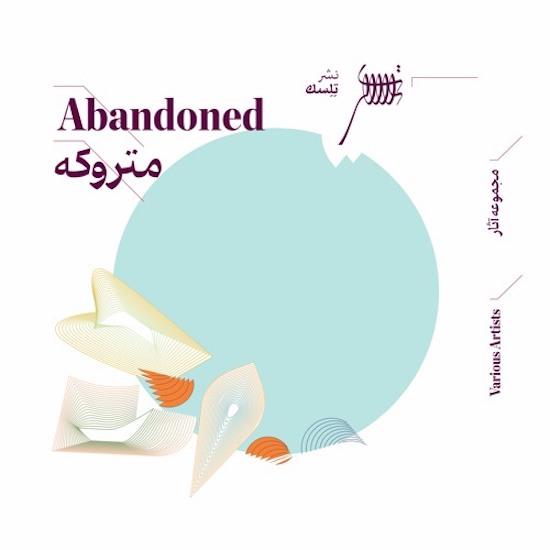Tehran, the capital of Iran, is a field for constant destructions and constructions; a palimpsest of different historical layers, each being agglomerated into each other all over the city. Traditionally, because of its geopolitical coordinates, Iran has been a land of ruins and abandoned spaces being replaced by new buildings. In this context, a huge portion of collective spatial memories remain in the minds of Tehranis: Tehran breathes and burns in nostalgia, and yet it destroys itself day and night.
Abandonment is a concept album, one of the few of its kind in Iran; a collection of seven commissioned pieces from seven composers based on the idea of ‘Abandonment’, each interpreting the idea in their own style. For example, Issa Ghaffari, an Iranian classical music composer, has written a polyphonic waltz for strings; representing a somber dance in memory of a lost, or as the title reflects, a ‘Desolate Sway’. In her musical collage, Aso Kohzadi, the contemporary music composer, applies Iranian music as the main character for her piece, mixed with contemporary sounds and a song from more than a century ago; a piece which on one hand, brings to mind her previous works and on the other hand, juxtaposes the different sonic layers of the memories of the wanderer and the old town in Tehran.
Each composer has faced the idea of Abandonment differently. Soheil Mokhberi narrates a sonic story of Arbab Jamshid, a historical district that has been both a political hotspot and a thriving street for the newborn cinema industry in mid-twentieth-century Iran. Starting from pizzicato strings and short playful melodic motifs, the piece, written for Iranian and classical string instruments, turns into a requiem for the present-day Arbab Jamshid street. Golfam Khayyam, Sote, and Bamdad Afshar have each interpreted the idea more abstractly. Ehsan Sedigh’s ‘Nagasaki Digit’, however, is the only piece in which an international war crime is the centre of the artist’s attention: the Nagasaki atomic bombardment of 1945. In this polyrhythmic piece, the composer applies a uniquely personal style to represent the idea of a demolished city. The main melody is played by the harpsichord, changing its role from a classical instrument to a somehow horrifying modern digital alarm. It blends with a constant siren-alike ascending background texture, then turns into a melodic character with sudden strokes of drums. The composers of Abandonment are a hand-picked ensemble of avant-garde young artists, some experimenting with new genres in this record, expressing the idea of a lost past.


